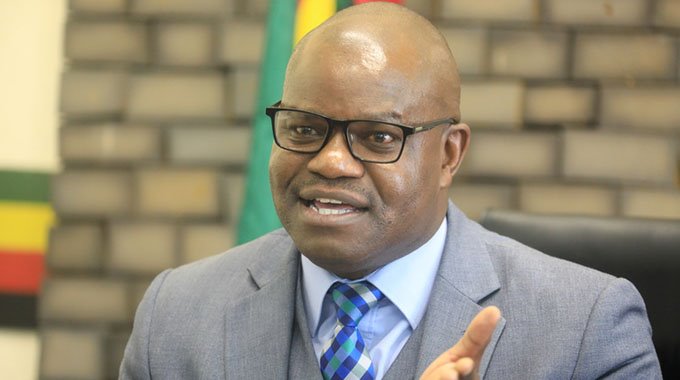Source: ‘TSP anchors economic reforms’ | The Herald August 5, 2019
Farirai Machivenyika Senior Reporter
Government has implemented its economic blueprint, the Transitional Stabilisation Programme (TSP) in its entirety in the ongoing economic reforms unlike previous policy documents that have been produced since independence.This was said by Secretary for Information, Publicity and Broadcasting Services Mr Nick Mangwana in the last excerpt of a three part series, published in The Saturday Herald.
“Several well-thought economic blueprints have been crafted in post-independence era in Zimbabwe, some with flowery acronyms and couched in intellectual language, but none except the TSP passed the implementation test.
“Have we not have had many a regret that Zimbabwe is good at producing blueprints that end up gathering dust somewhere?” Mr Mangwana said.
He said the programme, which is President Mnangagwa’s short-term economic reform plan, to achieve Vision 2030 of Zimbabwe becoming a middle income economy was being implemented wholesomely.
“The implementation of TSP is being followed in letter and spirit, all within a scientific matrix, quite unlike any other time in history of Zimbabwe.
“The TSP outlines policies, strategies and projects that guide Zimbabwe’s social economic development interventions covering the period from October 2018 up to December 2020,” he said.
He added that the reform thrust was aptly captured in the “Zimbabwe is Open for Business” and “Austerity for Prosperity” mantras.
Mr Mangwana said under the TSP Government was correcting past imprudence that include lack of fiscal and monetary discipline, distortions in the foreign markets, ballooning of the overdraft facility with the RBZ that resulted in the over-issuance of Treasury bills.
“To contain the public expenditure bill, the TSP introduces the following interventions; public service reforms, strengthening public finance management system, improving the utilisation of public resources and improving accountability.
“The major target of the public service reforms is to reduce the consolidated public service wage bill and salaries for central Government plus wage-related transfers,” he said.
Mr Mangwana also said some of the measures include a freeze on employment of non-critical staff, introduction of a new policy on personal issue vehicles, rationalisation of foreign missions, identifying areas overlap, duplication and non-essential services and reforming State-owned enterprises.
“The TSP interventions are already bearing fruit as Government managed to reduce its employment costs by retiring 3 365 youth officers. It also slashed salaries of senior Government officials by five percent,” he said.
“On the monetary front, the new dispensation managed to arrest inflation which was galloping at a pace that was a haemorrhage to the economy. The Minister of Finance and Economic Development Professor Mthuli Ncube timely introduced Statutory Instrument 142 which ended the multi-currency system and introduced a mono-currency system.”
On the ease of doing business and improving the business environment he said: “Government has started implementing plans to establish a streamlined one-stop entity called the Zimbabwe Development Agency in order to reduce the time taken by investors to start up a business in the country.”
Mr Mangwana added that the setting up of Special Economic Zones was also part of efforts to improve the business environment.
“To further improve the ease of doing business, Government has also fully revived efforts to fight corruption by reconstituting and re-energising the Zimbabwe Anti-Corruption Commission by giving it arresting powers.
“A new ZACC chairperson Justice Loice Matanda-Moyo and a new team were appointed,” he said.He said Government’s efforts have been noted by respected institutions.
“Reforms by the new dispensation received thumbs-up from several quarters with the International Monetary Fund (IMF) Representative to Zimbabwe, Mr Patrick Imam, telling Business Weekly that, “we welcome the reforms announced in the February 20 Monetary Policy Statement and the June 24 press release, which seek to address economic distortions that have impaired macroeconomic stability.”“The United Nations Resident Coordinator Mr Bishow Parajuli also welcomed the reforms, saying ‘this economic reform which is taking place is essential, the steps being taken for economic reform were essential,’” he said.
Mr Mangwana added that the World Bank upgraded Zimbabwe’s ranking from low income economy to a lower middle income economy for the period 2019 to 2020.
“This shows that the economy is growing and the country is progressing well towards its Vision 2030 target of turning the economy into middle income status by 2030,” he said.
The post ‘TSP anchors economic reforms’ appeared first on Zimbabwe Situation.
